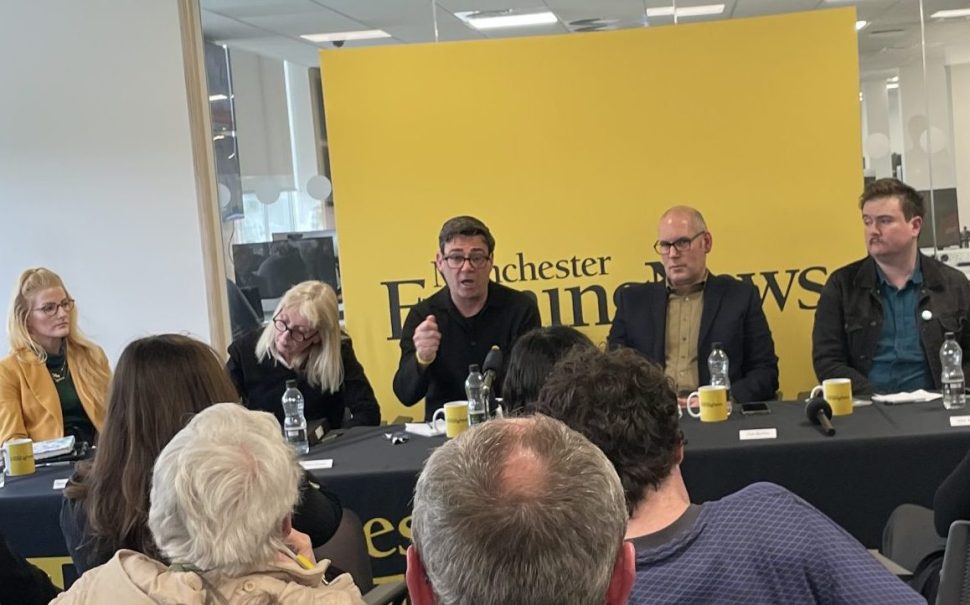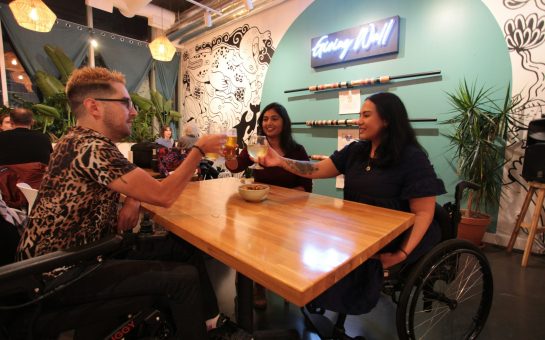Residents of the ten boroughs of Greater Manchester will arrive at polling stations on Thursday to elect the next mayor.
Created in 2017, the mayor of Greater Manchester is an important figure for representing the area nationally and lobbying the government.
The mayor, who has the most powers of any elected mayor outside of London, oversees decisions in key areas such as public transport, economy and innovation and environmental issues.
They also hold the role of police and crime commissioner and take responsibility for the Greater Manchester Fire and Rescue Service.
But who is running and what are their policies?
Jake Austin – Liberal Democrats
Born and raised in Wigan, Jake Austin has labelled himself as “the progressive alternative” for Greater Manchester this election.
He has promised to an extension to the Metrolink which will better connect areas like Stockport, Bolton and Wigan, which will be a priority should he be elected.
A focus on parts of the region outside of the city centre, something which he believes current mayor Andy Burnham has neglected, will be his focus throughout his potential term.
Dan Barker – Reform UK
Barker’s election campaign hinges on seven key pledges which promise to reduce crime, grow the economy, improve connectivity between the ten boroughs and build more homes.
One of his most radical campaign points is committing to an independence referendum for boroughs that want to leave the Combined Authority, such as Bolton.
He was damning in his assessment of Andy Burnham’s leadership as mayor, saying: “After the Labour mayor’s seven years of failure, Greater Manchester deserves better.”
Nick Buckley – Independent
Nick Buckley is the only independent candidate running for mayor of Greater Manchester in this election, doing so to “stand against puppet masters and political manipulation,” and answer “only to the people.”
His key pledges include ‘fixing’ the police, rejecting the Clear Air and Ultra Low Emission zones, reducing council tax and holding failing civil servants to account.
Interestingly, another of Buckley’s key pledges is to hold a referendum on the future of the role of the Mayor, determining if it should be abolished or remain in place.
Andy Burham – Labour and Co-operative Party
Incumbent mayor Andy Burnham has held the position of Mayor of Greater Manchester since its inception seven years ago and is running for his third term.
Burnham’s manifesto focuses on two key points.
The first is to bring rail into the Bee Network by integrating eight commuter lines by the end of his third term in 2028.
The second is the introduction of the MBacc, or Greater Manchester Baccalaureate. This is a plan to “give young people an equal alternative to the university route” by allowing 14-year-olds to choose GCSEs tailored for a specific industry.
Burnham’s other notable pledges related to ‘end the housing crisis by 2038’ and the introduction of primary care facilities and job centres called Live Well Centres.
Laura Evans – The Conservative Party
After coming second in the 2021 election, Laura Evans is running again for Mayor of Greater Manchester this year.
As part of her new campaign, Evans promises to create over 30,000 new jobs through an ‘Investment zone for Greater Manchester that she labels ‘a new Silicon Valley.’
She also vows to build thousands of new affordable homes on land currently occupied by derelict sites, making the bulldozing of green spaces a thing of the past.
Her other key pledges include stopping criminal gangs, ending rough sleeping with a new ‘Home for Life’ programme and creating a Metrolink to every borough.
Hannah Spencer – Green Party
Like other candidates, Hannah Spencer has five key pledges for her campaign.
She promises to combat climate change through a mass home insulation scheme which will end the “inhumane choice between heating and eating while cutting carbon emissions.”
Another key point of Spencer’s campaign is to tackle gender-based violence by reinstating the GMP’s Serious Sexual Offences Unit, which was disbanded in 2017.
Other notable pledges include introducing a cross-rail network with under and overground links, creating an Independent Commissioner for Future Generations and giving more powers to the mayor through a “London-style assembly, directly elected by you and representing you fairly.”
Featured image: Creative Commons Attribution-ShareAlike 2.0




